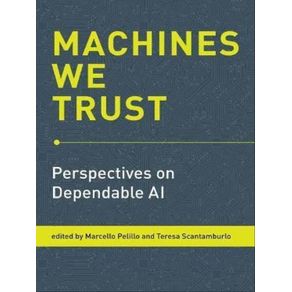MACHINES WE TRUST
Favoritar
De: R$ 531,00Por: R$ 371,70ou de
Preço a vista:R$ 371,70
Economia de R$ 159,30Calcule o frete:
Para envios internacionais, simule o frete no carrinho de compras.
Calcule o valor do frete e prazo de entrega para a sua região
Sinopse
Ficha Técnica
Especificações
| ISBN | 9780262542098 |
|---|---|
| Subtítulo | PERSPECTIVES ON DEPENDABLE AI |
| Pré venda | Não |
| Peso | 380g |
| Autor para link | PELILLO MARCELLO |
| Livro disponível - pronta entrega | Não |
| Dimensões | 25.15 x 17.78 x 1.52 |
| Idioma | Inglês |
| Tipo item | Livro Importado |
| Número de páginas | 174 |
| Número da edição | 1ª EDIÇÃO - 2021 |
| Código Interno | 989814 |
| Código de barras | 9780262542098 |
| Acabamento | PAPERBACK |
| Autor | PELILLO, MARCELLO |
| Editora | MIT PRESS |
| Sob encomenda | Sim |

